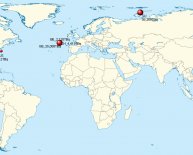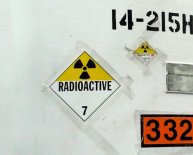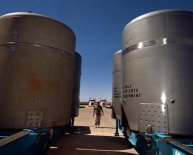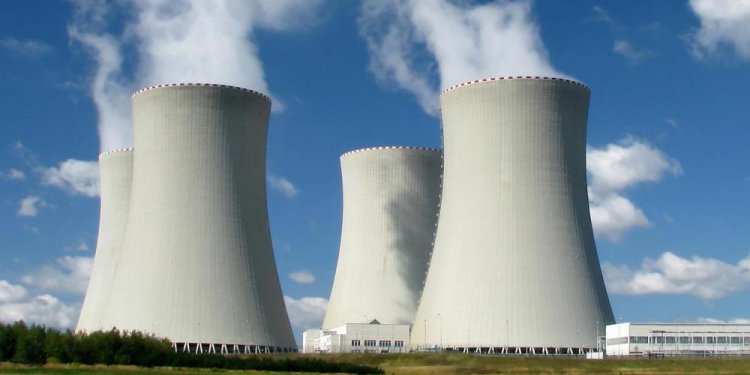
Methods of Nuclear Waste Disposal
US Policy:
Until the mid-1970's, U.S. utilities planned that used fuel from nuclear plants would be kept on-site for a few months, and then be shipped to a reprocessing plant to recover plutonium and uranium. Consequently, plant specifications had limited spent-fuel storage capacity. Up until 1982, the federal government intended to receive spent fuel for disposal at a specified date. The date has continuously been postponed. The Nuclear Waste Policy Act of 1982 determined that the Department of Energy would accept the used fuel to be transported and disposed in geological foundations by 1988. However, this schedule has been delayed also, and no facilities have been constructed.
Internet Resources on Nuclear Waste:
The basic method of Nuclear Waste Disposal is to bury it in the ground and hope it doesn't leak out. More specifically, to identify stable Geological Foundations which can host the material for 10, 000 years, like Yucca Mountain Nevada:
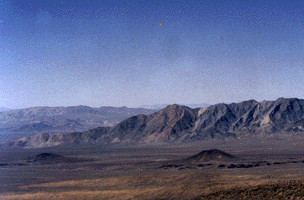
Here is what some countries are doing/considering but note that most nuclear waste is still stored on site.
- Canada: Studying disposal in crystalline rock
- Spain: Salt, Granite and Clay
- France: Granite, Clay, Schist or Salt
- Switzerland: Studying disposal in crystalline rock
- Belgium: Studying disposal in clay
- UK: Plans to "reprocess" after interim storage
- Sweden: Crystalline Rock
- Japan: Studying disposal in granites and tuff
- Finland: Studying disposal in granite

